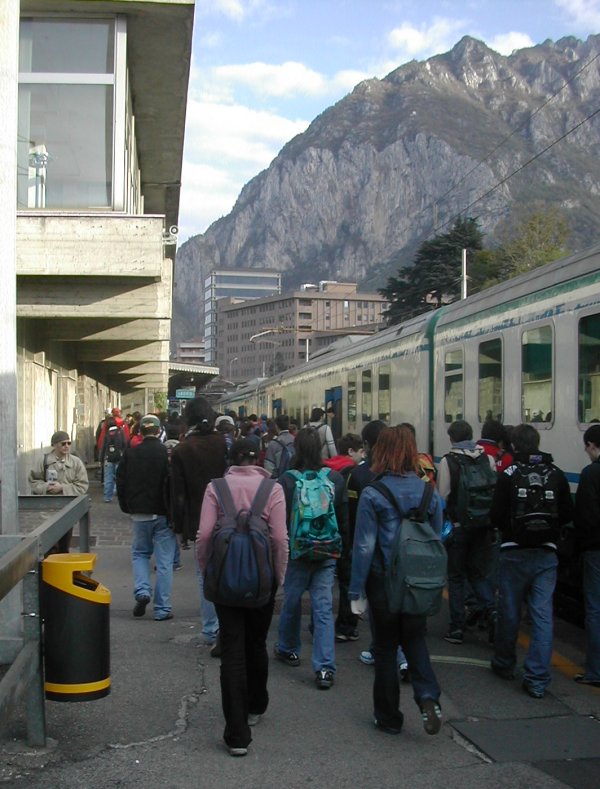The other night I attended a party of Americans, with their Italian significant others and families. One American remarked that the kids present were amazingly polite, well-spoken, and self-possessed, compared with American kids of the same ages. He was right, but I hadn’t particularly noticed, because it’s what I’ve grown to expect.
I have written before about the brattiness of many young Italian kids, but I have also long observed that, by the time they reach puberty, most Italian kids are very civilized in adult company and can hold their own in adult conversations. This seems to be achieved without much discipline when the kids are younger, a noticeable difference from the US, where I have seen parents literally beating young kids into submission, and yet those same kids are not much fun to have dinner with when they’re teenagers.
It seems that Italian families work more by example than overt discipline. Most families have at least one meal together a day, usually a leisurely one. With so much exposure to adult company, the kids naturally absorb good table manners, conversation skills, and healthy eating habits (assuming that those things are present in the family, as they usually are).
Kids also learn at home to drink like responsible adults. It’s very normal to begin sampling wine with meals from an early age, and even to be offered it in restaurants (if the parents are drinking any) from age 13 or so. By law, kids can drink in bars or buy alcohol from age 16; it’s not unusual for high school kids to spend a Saturday evening hanging out in a bar drinking beer, just like college kids do in the States.
In spite of the easy availability, most Italian young people don’t binge drink the way Americans do – partly, I suspect, because it doesn’t carry the thrill of illicit behavior. So you rarely see anyone, young or old, drunk in public – that’s not considered cool in Italy, even among teenagers.
related article: The Family That Eats (and Drinks, and Talks) Together












